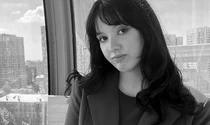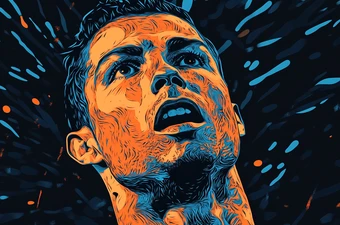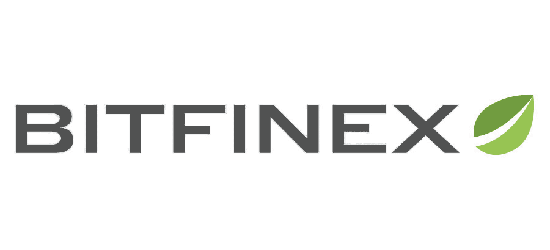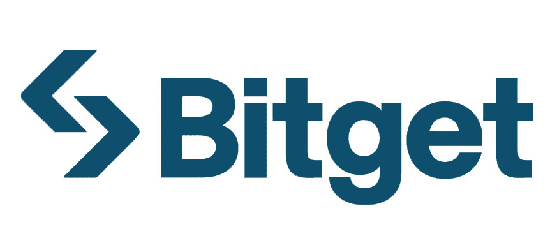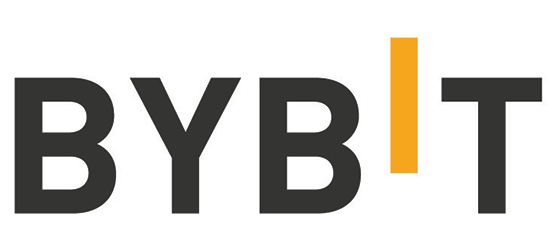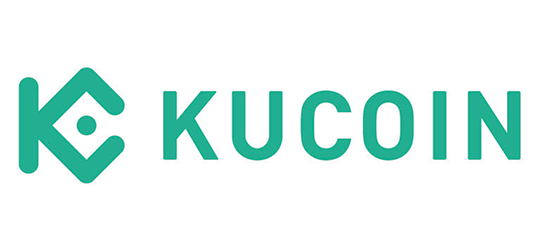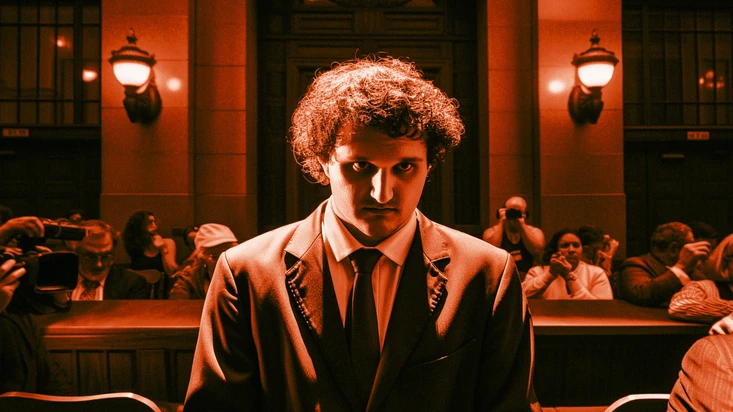
A Sam Bankman-Fried Trial: A Man With No Soul
Nearly a year after the collapse of FTX, its former CEO Sam Bankman-Fried finally went on trial. The six-week trial began with simple jury selection on Oct. 3. He faces one count of wire fraud, two counts of conspiracy to commit fraud, and one count of money laundering conspiracy over the alleged theft of customer funds.
Despite the fact that the trial was held behind closed doors, the media room was packed with reporters covering every important step in the case. In the weeks leading up to the hearing, Bankman-Fried's legal team had been pushing for their client's release to prepare for trial. But as those in attendance noted, Sam Bankman-Fried seemed less nervous, responding to the judge, chatting with his attorneys and taking notes on his laptop. Journalists also remarked on the defendant's noticeable thinness, which only confirms Bankman-Fried's earlier complaints about having to eat bread and water in prison. In addition, his famous curls had been cut short.

The excitement of the first day did not justify itself. The first day of the hearings focused on the selection of 18 jurors. The crowd of potential jurors grew as rapidly as the crowd of journalists, crypto experts, and anyone else who had something to say about cryptocurrencies. Judge Lewis Kaplan, who is presiding over the case, warned the jurors not to do any research or delve into media articles about the case.
CRYPTO IN THE COURT: Amid Sam Bankman-Fried Jury Selection Many Tell of Crypto Losses as Scaramucci and Trubucco Named - Inner City Press story: https://t.co/OJub4tMVCq [Art courtesy E. Williams] More details & analysis on @SubstackInc here https://t.co/hGvjpP27s6 pic.twitter.com/srKupj7vEK
— Inner City Press (@innercitypress) October 3, 2023
Kaplan has previously said on multiple occasions that he would select jurors who are not familiar with the industry. At the Oct. 3 deliberation, jurors were asked if they had prior knowledge of FTX and Alameda. Someone responded that he had worked for a company that invested in FTX and Alameda and was among the affected clients. Another potential juror turned out to be an opponent of cryptocurrencies and admitted that he was unsure of his objective judgment. He was excluded from the final list.
Next, prosecutors read a list of possible witnesses. Among those already known are Caroline Ellison, Gary Wang, Nishad Singh, Ryne Miller, Constance Wang, family members of Joe Bankman and Barbara Fried and Anthony Scaramucci. The companies include Jane Street Capital, Sequoia Capital, BlockFi, Genesis, OTPP, Binance, Nexo, Guarding Against Pandemics and Voyager Digital.
A perfect juror
Returning to the issue of jury selection, some conclusions can already be drawn. Judge Kaplan strongly advised against media scrutiny of the case or being on one side or the other of the crypto industry. The reason lies on the surface. It consists of the impartiality of the jury. But if you dig deeper, questions emerge. And they all lead not even to the shocking actions of Bankman-Fried, but to the impact cryptocurrencies have on the world.
But the truth is that cryptocurrencies are not the cause in the criminal acts of Bankman-Fried, but only a trendy tool. Bankman-Fried's crimes are as old as the world: misleading his company's customers, fraud, and embezzlement of funds. And the tool could have been anything from cryptocurrencies to artificial intelligence.
Experts' opinions
How will the hearing go? Under the US court system, the trial will last from 4 to 6 weeks. First, the prosecution will present its case by calling its witnesses, affected FTX customers and investors, and accomplices to the crime. Then the defense will decide how it wants to respond. In this case, the anticipated strategy of Bankman-Fried's attorneys will be to poke holes in the prosecution's case. Whether the defendant himself will take the stand is unknown. It depends on the strength of the prosecution's arguments. And the defense's version of the response will be built on Sam Bankman-Fried's non-involvement. In other words, the former FTX CEO, according to their version, did not intend to defraud customers of billions of dollars. The Withers law firm explained this version, saying that the defense will call witnesses who will talk about Bankman-Fried's integrity. “I don’t know that I’d want to be on the stand having to make the case that I’m an idiot,” agreed Jason Allegrante of Fireblocks.
The prosecution certainly doesn't benefit from Sam Bankman-Fried's speech. The fact that the former CEO of FTX, immediately after the collapse of his company, spoke out in various media may play into their hands.

More revelations
As the trial approached, more new revelations about both Bankman-Fried and his activities began to surface. Michael Lewis, author of Going Infinite, revealed details about the disgraced businessman's personal life. Why is this important to the case? While the defense builds a halo of integrity around his client, Lewis' book says that Bankman-Fried has no soul.
"In a lot of ways, I don’t really have a soul," the businessman writes, describing his relationships with coworkers and his need for solitude. Bankman-Fried literally admitted to a lack of empathy.
What to expect?
Despite the fact that the first day of the meetings turned out to be simple and scarce of information, many experts agree on one thing: we should expect big revelations. So, the case is really worth watching. As a reminder, Bankman-Fried is charged with seven counts. If the court finds Sam Bankman-Fried guilty, he will spend more than 100 years in prison.
Gary Wang Sam Bankman-Fried Binance




